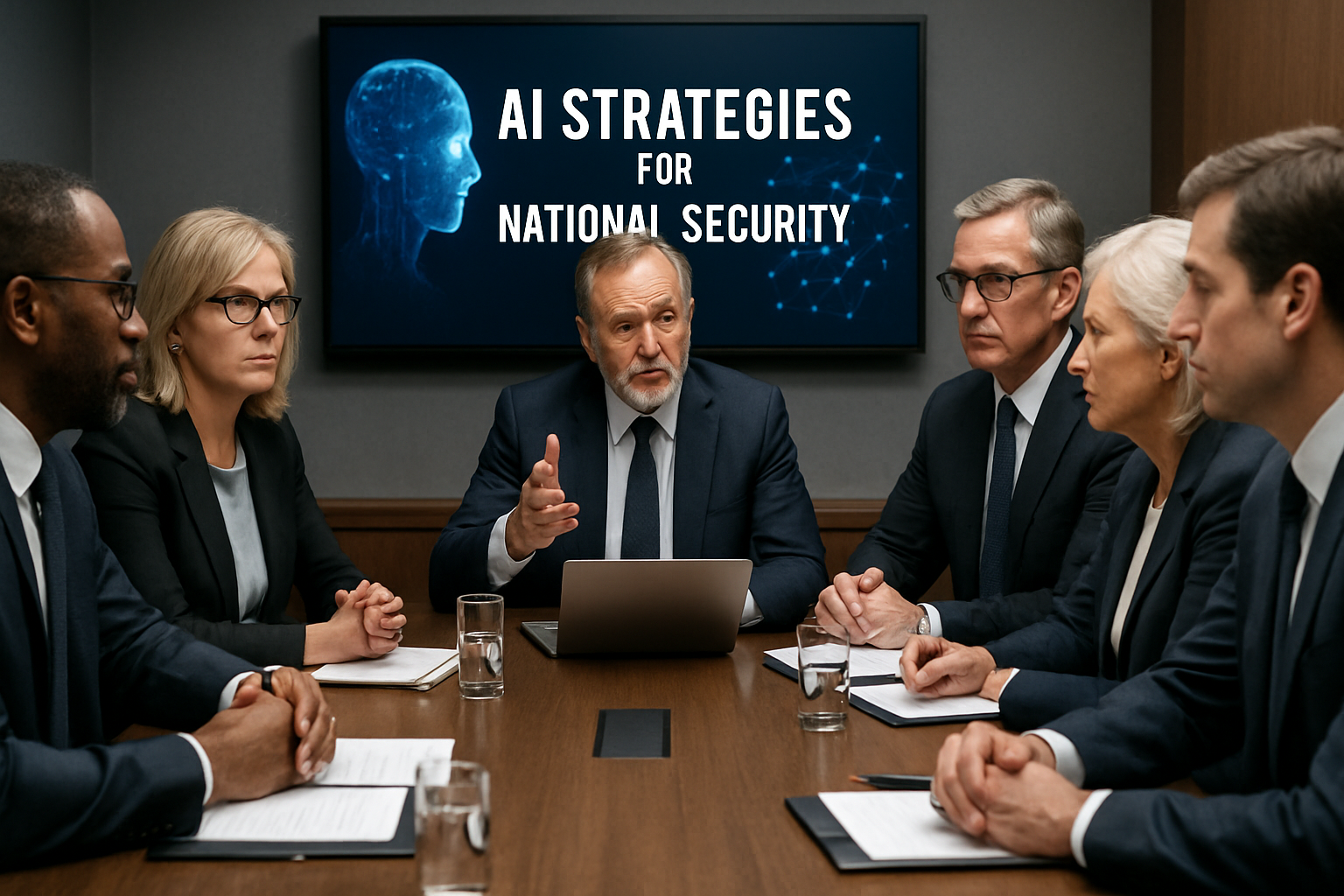Quick Take
- Anthropic secures $200 million Pentagon contract alongside Google, OpenAI competitors
- Forms 11-member National Security Advisory Council with former CIA Deputy Director, senators
- Council includes nuclear security chiefs targeting $800 billion defense spending pipeline
- Strategic positioning for Five Eyes alliance and Indo-Pacific AI governance partnerships
- Company offers Claude AI access to all government branches for $1
Pentagon sources confirm Anthropic’s National Security and Public Sector Advisory Council assembles a formidable roster of former defense and intelligence leaders. Former U.S. Senator Roy Blunt brings intelligence committee expertise, while David S. Cohen, former CIA Deputy Director, adds deep intelligence operations experience.
Lisa Gordon-Hagerty and Jill Hruby, both former leaders of the National Nuclear Security Administration, contribute nuclear weapons expertise crucial for AI safety protocols. Patrick Shanahan, former Acting Defense Secretary, and Dave Luber, former NSA cybersecurity director, complete a team designed to accelerate responsible AI adoption across defense and intelligence communities.
Former Senator Jon Tester’s oversight of $800 billion in defense spending provides critical insight into appropriations processes that will shape AI contract awards.
Strategic Timing Captures Defense Transformation
National security agencies are pouring billions into AI and autonomy contracts, creating fierce competition among tech giants. Anthropic joins Google, OpenAI, and xAI in securing Defense Department contracts worth up to $200 million each. This represents the most significant government commitment to integrating AI in defense operations.
The adoption of AI is transforming the department’s ability to support our war fighters and maintain strategic advantage over our adversaries,
according to Chief Digital and AI Officer Doug Matty.
The next two to three years will determine whether democratic or authoritarian models of AI governance shape the global order for decades.
Market Differentiation Through Responsible Standards
Anthropic’s advisory council focuses on creating industry-leading standards that promote what the company calls a “race to the top” for responsible national security applications. This approach sets Anthropic apart from competitors by emphasizing ethical deployment of AI alongside technological advancements.
The council will identify high-impact applications strengthening U.S. and allied capabilities across cybersecurity, intelligence analysis, and scientific research. Relationships with Five Eyes intelligence alliance countries and Indo-Pacific partners receive particular emphasis, reflecting global strategic priorities.
Revenue Growth Through Government Partnerships
Beyond defense contracts, Anthropic has deployed Claude to 10,000 scientists at Lawrence Livermore National Laboratory. The company has also partnered with the National Nuclear Security Administration to develop nuclear safeguards for AI systems. The company offers Claude access to all three branches of government for $1, demonstrating commitment to public sector adoption.
These partnerships create substantial revenue streams while establishing Anthropic as the trusted AI provider for sensitive government applications. Voluntary partnerships with Department of Energy nuclear experts and U.S. Center for AI Standards showcase proactive safety measures that build government confidence.
Strategic Positioning Creates Competitive Edge
Anthropic’s model shows how AI companies can capitalize on government partnerships to gain competitive advantage. The advisory council provides direct access to decision-makers who control billions of dollars in AI spending, creating significant business development opportunities.
Companies seeking government AI contracts must prioritize security, compliance, and adherence to ethical standards. Advisory councils featuring respected former officials can accelerate trust-building with government customers.
The focus on Five Eyes and Indo-Pacific partnerships signals opportunities for international expansion for AI companies willing to align with democratic values and security priorities.
Navigating Regulatory Complexity
While the council includes seasoned policymakers, technology continues to outpace regulatory frameworks. Anthropic must navigate complex compliance requirements across multiple agencies while maintaining innovation speed.
Voluntary safety testing with government experts represents an innovative approach to risk management. However, regulatory expectations are likely to intensify as AI capabilities advance. Balancing transparency with competitive advantage remains challenging in the national security space.
Global Competition Drives Alliance Strategy
China and other authoritarian governments are advancing their own AI governance models, creating pressure for democratic allies to coordinate responses. Anthropic’s emphasis on allied partnerships positions the company to benefit from coordinated democratic AI strategies.
The council’s bipartisan composition helps insulate Anthropic from political shifts, ensuring continuity across administration changes. This stability proves crucial for long-term government partnerships requiring sustained investment and trust.
Anthropic’s National Security Advisory Council represents more than advisory guidance. It’s a strategic transformation positioning the company as America’s trusted AI partner for the most sensitive applications. As AI reshapes national security capabilities, companies that prioritize responsible development while maintaining competitive advantage will capture the most significant market opportunities.




